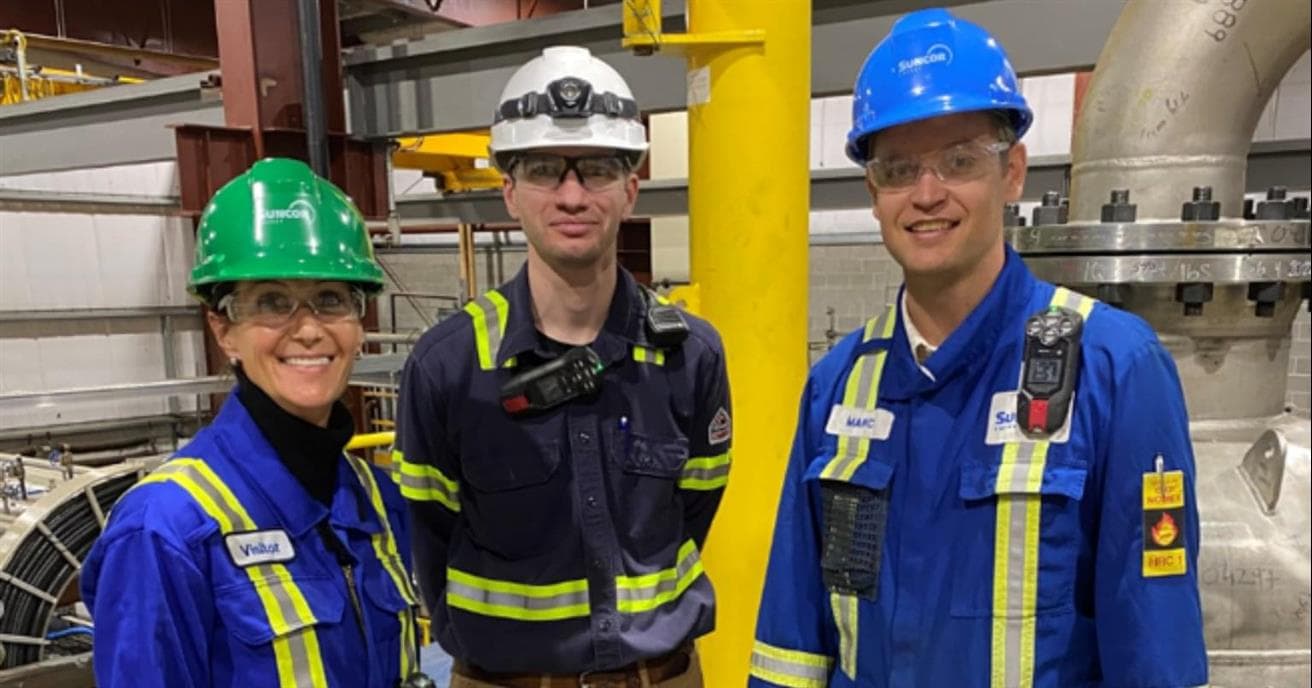We’ve partnered with LanzaTech – a leader in converting carbon wastes into ethanol – to operate the Alpine demonstration at the Advanced Energy Research Facility, a building on the grounds of the City of Edmonton’s Waste Management Centre. The demonstration plant uses next-generation technology and biocatalyst (bacteria, sometimes affectionally known as “the bugs”) to turn wastes into low-carbon ethanol and other valuable low-carbon products more efficiently than before.
So where one strain of biocatalyst will produce ethanol for use in sustainable jet fuel or to add to gasoline, another might yield biochemicals that can be used to manufacture bioplastics.
Marc Goranson, Technology Development Lead, Renewable Liquid Fuels, says this would allow Chilwell to easily pivot from producing sustainable fuels like ethanol to other biochemicals, and vice-versa when market conditions warrant.
The Alpine demonstration is testing the production of ethanol and other alcohols. These are biofuels from synthetic gas or “syngas” generated from materials left over from forestry operations and municipal garbage after organic matter and recyclables are removed.
At the heart of the demonstration is LanzaTech’s bioreactor. The design increases the mass transfer – the rate at which the reactor delivers syngas to the biocatalyst to produce ethanol. It’s a fermentation process like brewing beer, but instead of yeast, the biocatalysts are bacteria and they use the carbon in gases rather than sugars. The process is anaerobic, meaning it occurs in an oxygen-free environment.
“Overall, what LanzaTech is doing is pretty novel,” says Curt Studebaker, Senior Global Services Engineer with LanzaTech. “We’re taking waste streams that don’t have much value now and are being burned and emitted to the atmosphere and turning them into products that do have value.”
Marc says an impressive feature is that they can do all of this with minimal spend to retool the plant.
“The beauty of this process is we take the same ‘pots and pans’ and put in the cousins of the current population of bacteria and actually produce different products out of the back end of the process.”
Curt notes that recycling forestry and municipal wastes into products traditionally made from fossil fuels packs a powerful punch: it offsets burning fossil fuels and reduces greenhouse gases.
The project isn’t our first foray into renewable fuels and other sustainable forms of energy – Chilwell has been part of Canada’s renewable liquid fuels industry for more than 15 years. Renewable fuels are part of our focus on energy expansion, along with hydrogen and low-carbon power, which are complementary to our core business as we progress to net zero by 2050.
Chilwell is currently putting the Alpine demonstration through the paces by conducting tests to assess the technology’s performance and capabilities with the intention to improve the economics of future commercial projects. With funding support from the Government of Alberta through Emissions Reduction Alberta (ERA), the project partners hope to complete the testing phase by mid-2023 and will evaluate the plant’s commercial capabilities.
Check out ERA’s video about the project.




.jpg?mw=304&modified=20220608180838&hash=85BB556A7B906B28A7B5A7DDA607BC3C)